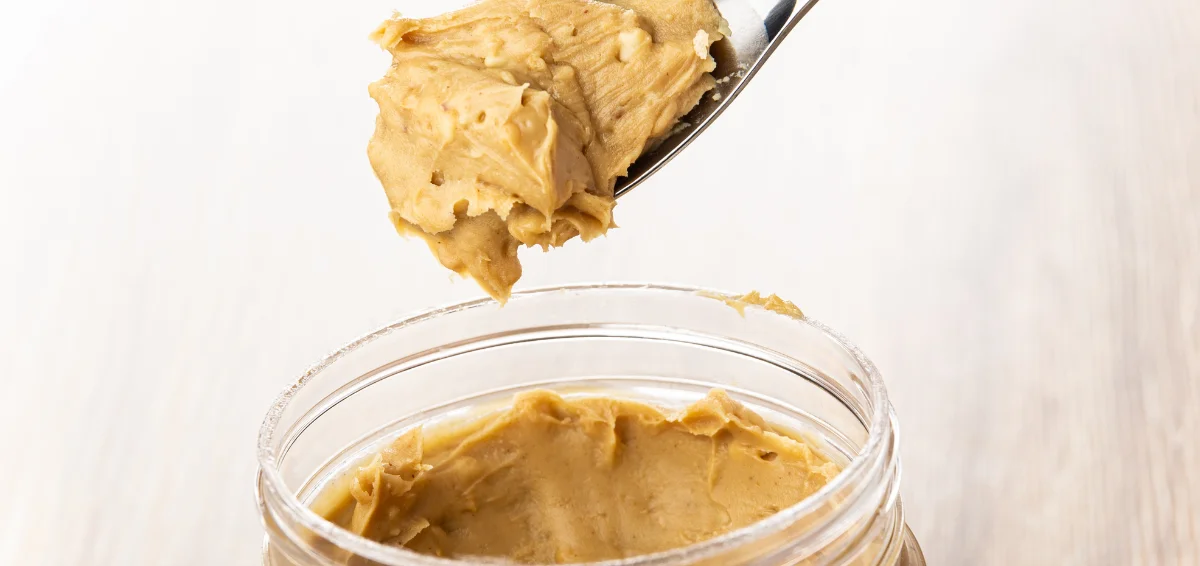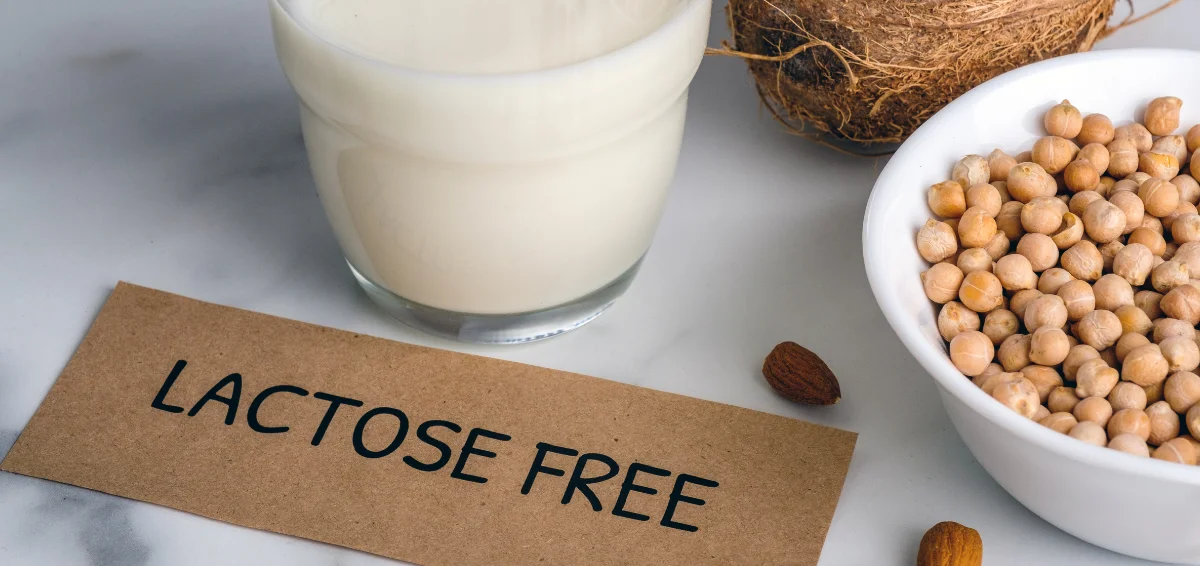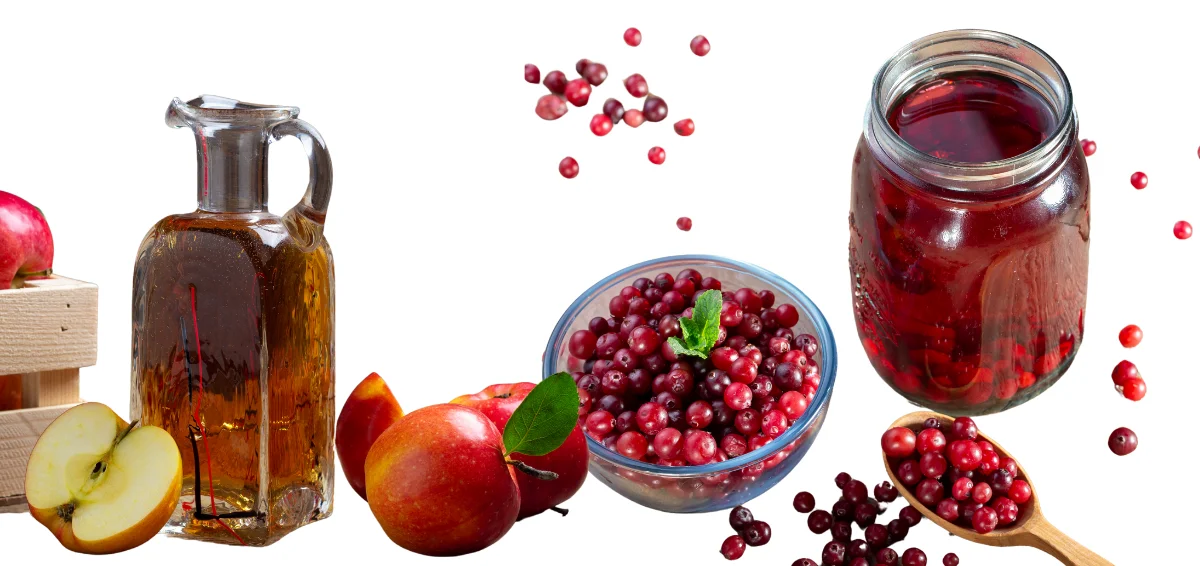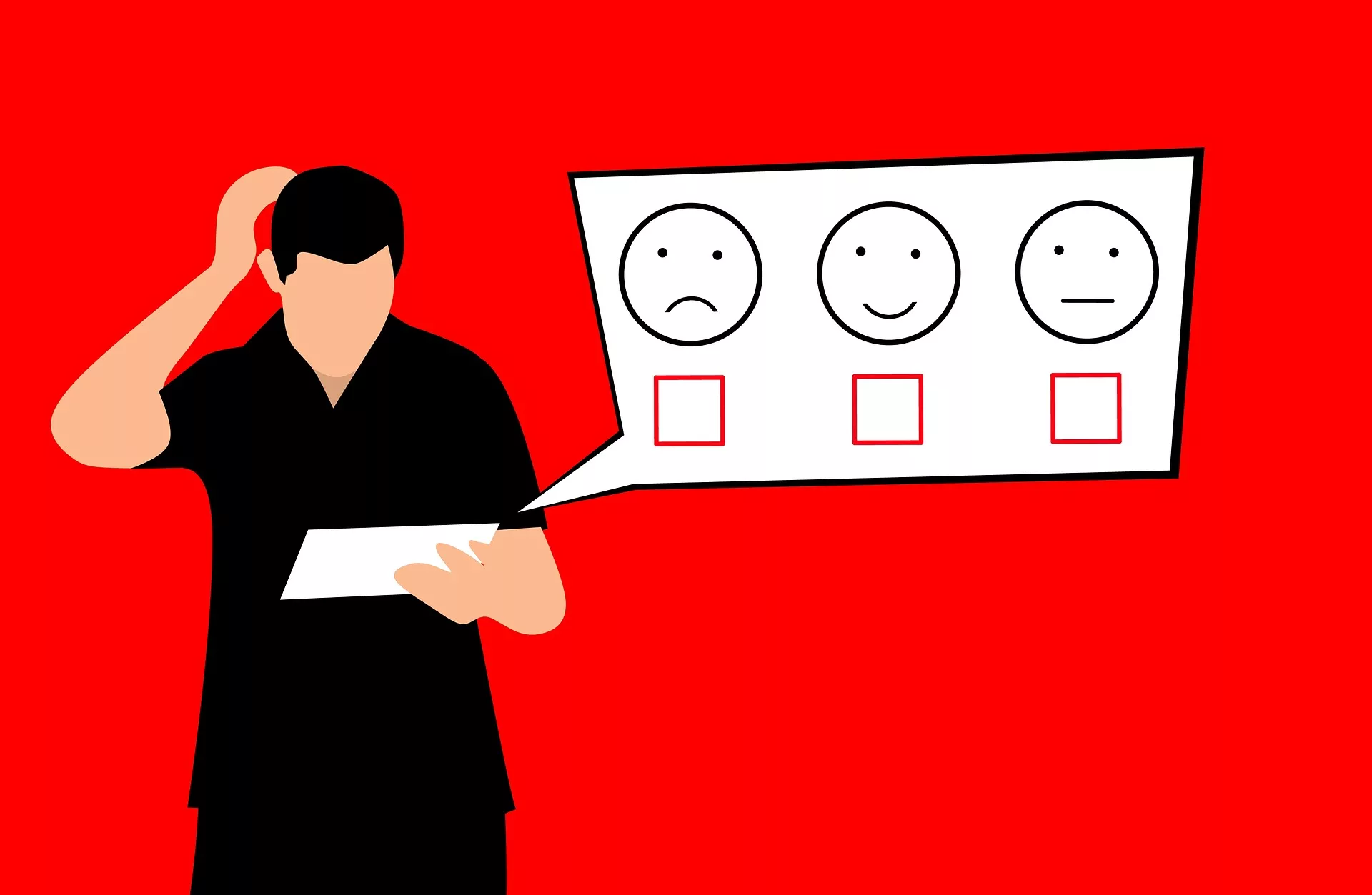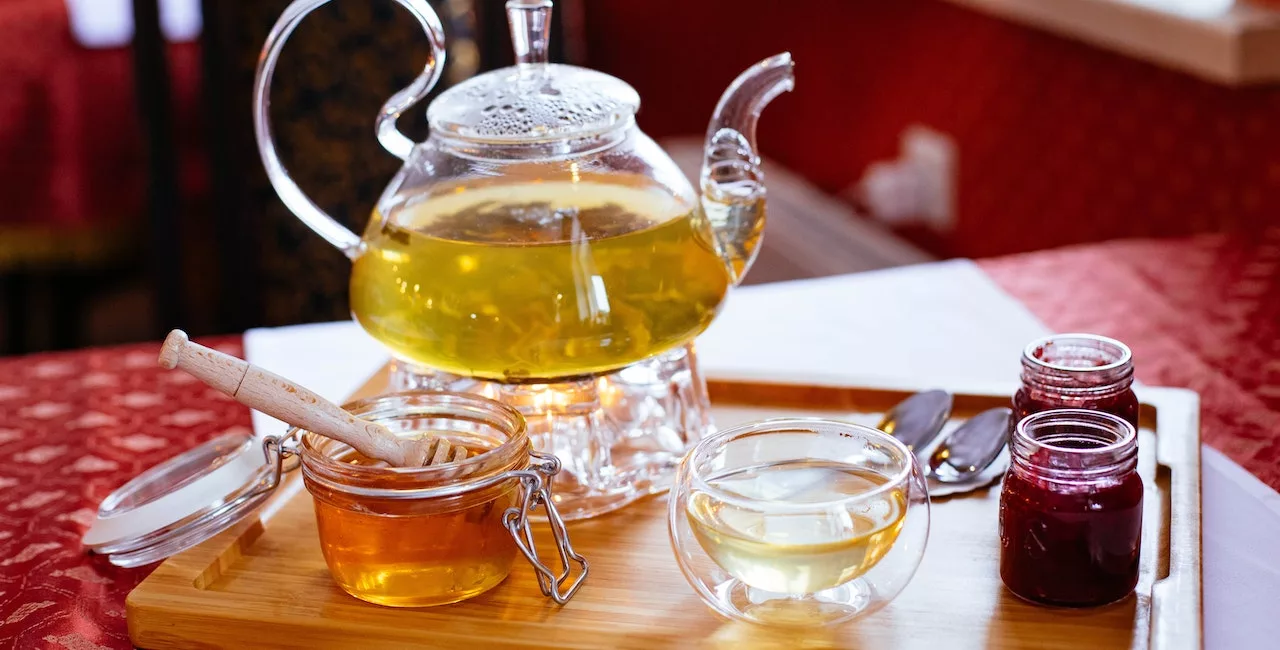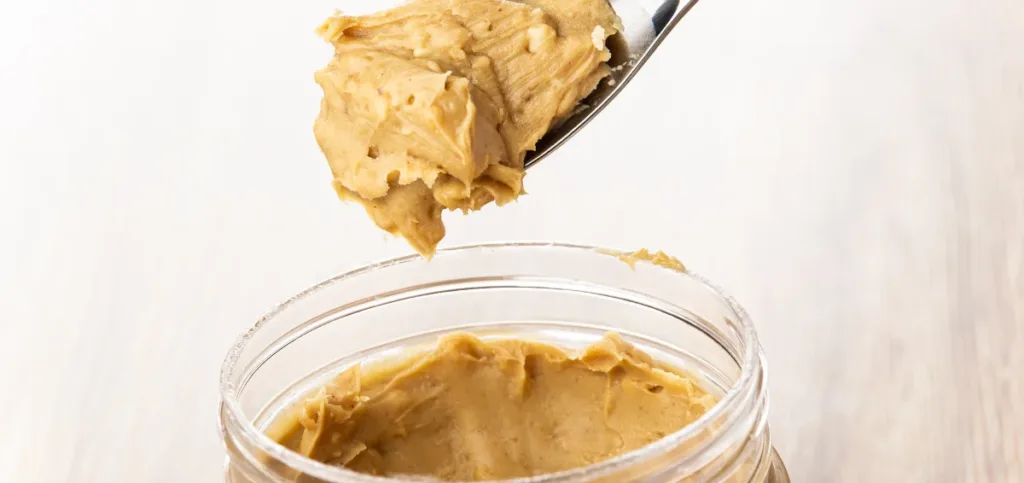
Butter is a versatile ingredient. It’s one of the most popular dairy products that comes in salted and unsalted varieties. Bakers swear by this ingredient to make rich, delicious treats.
However, some of us use butter more than others. If you are one of those, it is important to know about the nutritional profile of the ingredient. Butter is a source of fat. Consuming too much of it can prove harmful to our bodies. However, using it in the recommended portions is healthy as it supplies us with nutritional fat.
Let’s explore the topic of energy in a teaspoon of butter in more detail. We’ll also give you data-backed information about how much butter you should be consuming daily.
Read Also:- Crab Brulee Recipe
How Many Calories in a Teaspoon of Butter?
Butter can be salted or unsalted. Most people use salted butter for daily use. So, real butter implies salted butter. A teaspoon of butter contains 34 calories. Here’s the macronutrient breakdown of the ingredient.
1. Salted Butter (1 tbsp)
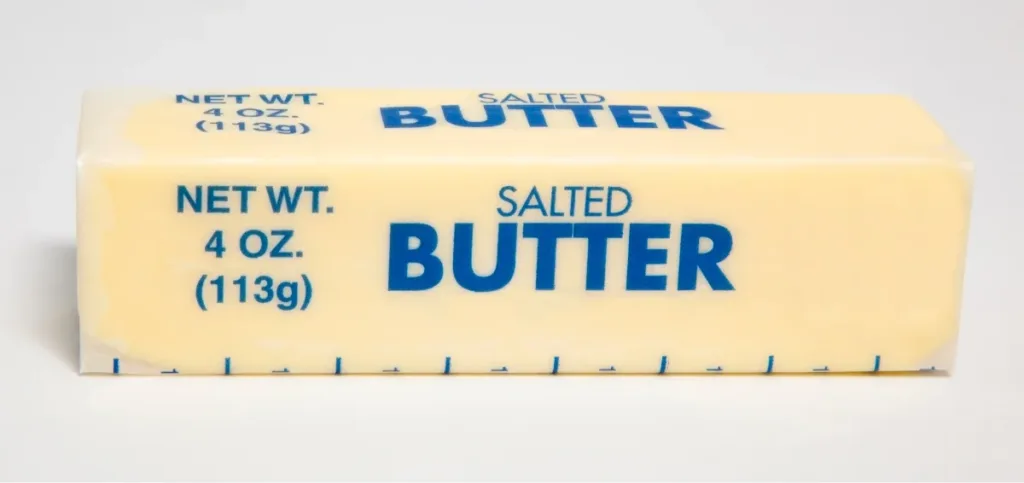
- Calories (or energy) – 34
- Carbohydrates – 0g
- Fats – 4g
- Saturated fats – 2g
- Trans fats – 0.2g
- Cholesterol – 10mg
- Sodium – 30mg
- Fiber – 0g
- Sugar – 0g
- Protein – 0g
2. Unsalted Butter (1 tbsp)

- Calories (or energy) – 102
- Carbohydrates – 0g
- Fats – 12g
- Saturated fats – 7g
- Trans fats – 0.5g
- Cholesterol – 31mg
- Sodium – 2mg
- Fiber – 0g
- Sugar – 0g
- Protein – 0.1g
3. Butter, Whipped With Salt (1 tbsp)
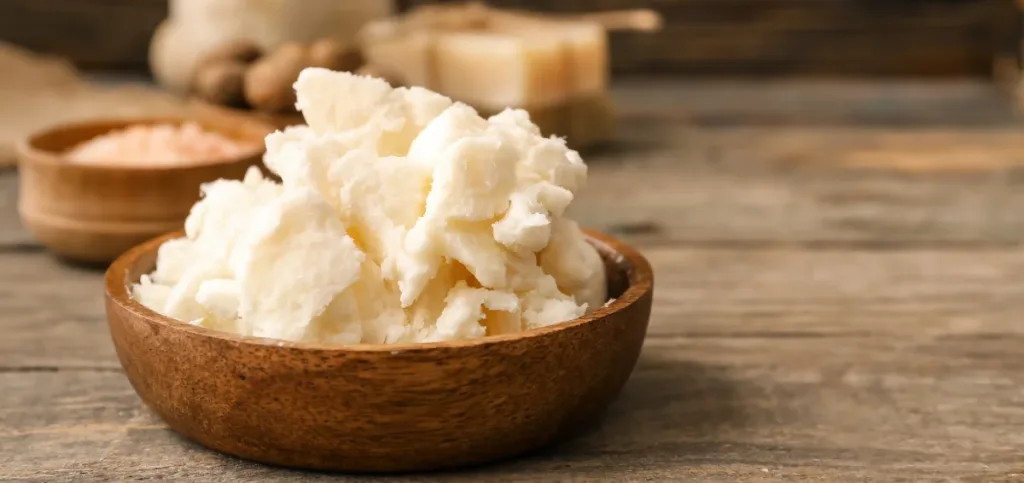
- Calories (or energy) – 67
- Carbohydrates – 0g
- Fats – 8g
- Saturated fats – 5g
- Trans fats – 0g
- Cholesterol – 21mg
- Sodium – 62mg
- Fiber – 0g
- Sugar – 0g
- Protein – 0.1g
Is Butter Healthy for You?
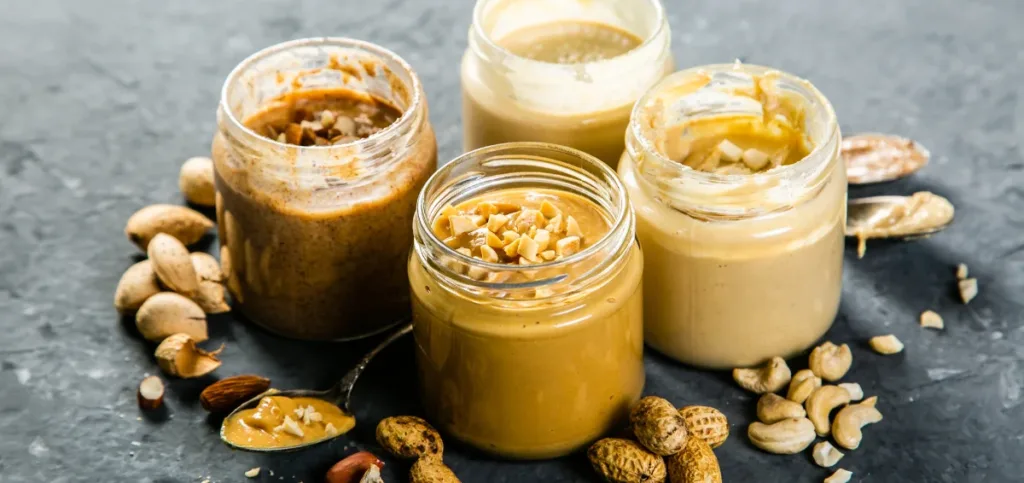
Butter is a rich source of fat. Naturally, it has been the subject of controversy in the world of health and nutrition. The ingredient has been extensively researched to determine whether its regular consumption is healthy or not. Several points have emerged from the research. Butter supplies our bodies with linoleic acid. This fat has anti-cancer properties.
Supplementing a diet with linoleic acid leads to reduced body fat. Butter is also rich in another fatty acid called butyrate. Fat is also produced by our bodies and used as an energy source for the intestinal cells. Butyrate advances digestive health by lowering inflammation.
Butter is also a source of fat-soluble vitamins. These include vitamin K, vitamin E, and vitamin A. These vitamins are necessary for various physiological processes. These include immune function, bone health, vision, and coagulation. Butter also contains Vitamin B12, which fights tooth diseases.
Where Do You Need to Exercise Caution When It Comes to Butter?

Butter is a great source of vitamins and healthy fats. However, it also contains high amounts of saturated fats. These have been linked with poor heart health. Their higher consumption can clog arteries and increase your risk of heart disease. Every ingredient with saturated fats needs to be consumed with caution. It is the same with butter.
Saturated fats are more inflammatory than other types of fat. This type of fat increases cholesterol levels in your body, particularly the harmful or bad cholesterol, known as low-density lipoprotein (LDL). High cholesterol causes the arteries to thicken. This, in turn, can lead to heart attacks, chest pains, and even stroke.
How Much Butter Per Day is Healthy?

The saying, ‘everything in moderation,’ makes the most sense in the case of butter. The exact amount of butter you can eat healthily depends on your weight, age, and activity levels. However, on average, a tablespoon of butter per day is adequate for most individuals.
Consuming the recommended amount of butter is easy for those who use it to enhance the flavor of other things. For example, spreading a bit of butter over your toast or using a small amount while roasting. However, those who use butter for cooking often exceed this recommended intake. So, it’s important to remain cautious if you use butter for this purpose.
What is the Healthiest Butter to Eat?
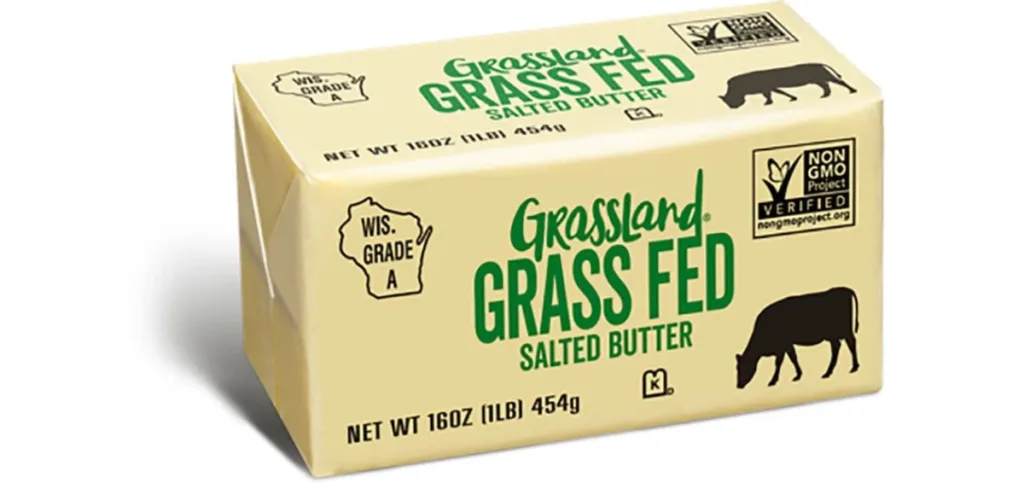
The healthiest butter to eat is the one that provides high levels of butyric acid and linoleic acid. The benefits of both these types of fats have been covered above. Grass-fed butter, or butter made out of the milk of grass-fed cows, contains these acids in high amounts. So, it is by far the healthiest butter. Grass-fed butter also has a richer taste than regular butter.
The main difference in the nutritional profile of grass-fed butter over standard butter is the high levels of heart-healthy omega-3 fatty acids. It also has less saturated fat and more polyunsaturated fat.
The best way to gain the benefits of grass-fed butter is to make it a part of your diet. Although you can use it in the traditional way to flavor your meals or for baking, we recommend drinking it. You can add the recommended amount of grass-fed butter to your morning coffee. It will not only provide you with all the benefits of this butter but will also keep you feeling full for a long. Moreover, you are less likely to go over the recommended intake of this butter when you consume it this way.
Is it Healthier to Make Your Own Butter?
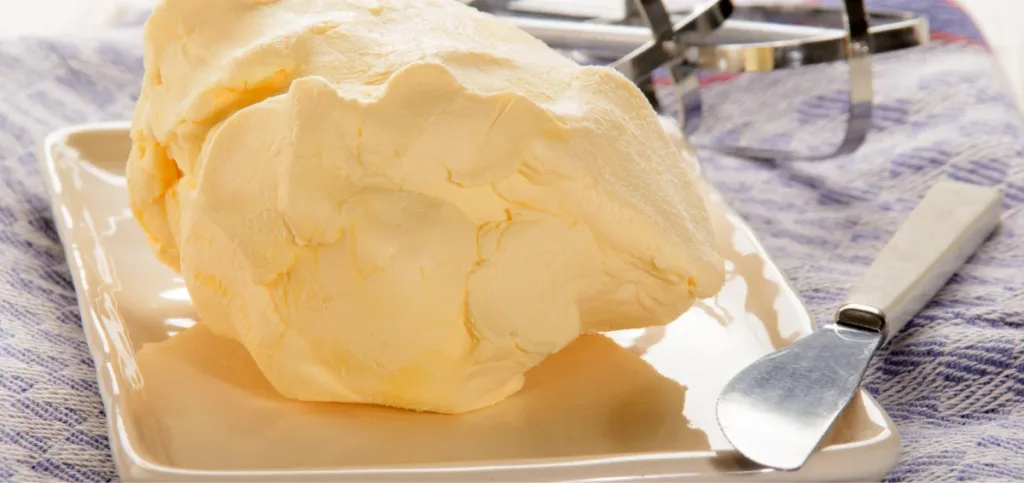
Like eating homemade food, consuming homemade butter is a healthier option. Regular store-bought butter is made out of pasteurized and homogenized milk. The milk has been heated in a manner that depletes it of its wonderful nutrients.
So, unless your nearby grocery store sells pure, grass-fed butter, we recommend making your own butter if you have some time on your hands. The process is quick and easy. You just need a couple of basic ingredients.
Ingredients
- Cold heavy whipping cream (2/3 cup)
- A 2/3 measuring cup
- A jar or a cup with a lid and a ring.
Instructions
- Pour the heavy whipping cream into your jar.
- Screw the lid and then shake the jar.
- Keep shaking till a soft lump is formed. This will take around 20 minutes.
- Shake till the buttermilk separates from the lump.
- The jar will now have only a lump of butter and liquid buttermilk.
- Pour the jar’s contents into a fine mesh strainer.
- Strain out the buttermilk.
- The solid butter will remain. Remove it, wrap it in a plastic wrap, and refrigerate.
Summing Up
Butter will always remain the favorite subject of nutritionists to debate over. Although it can benefit our health in various ways, when consumed in excess, it can prove unhealthy. Hopefully, the article has made you aware of both sides of the coin when it comes to this delicious ingredient. Use them to your advantage by incorporating butter in healthy amounts in your daily meals. You will certainly observe a positive difference in your overall health.

